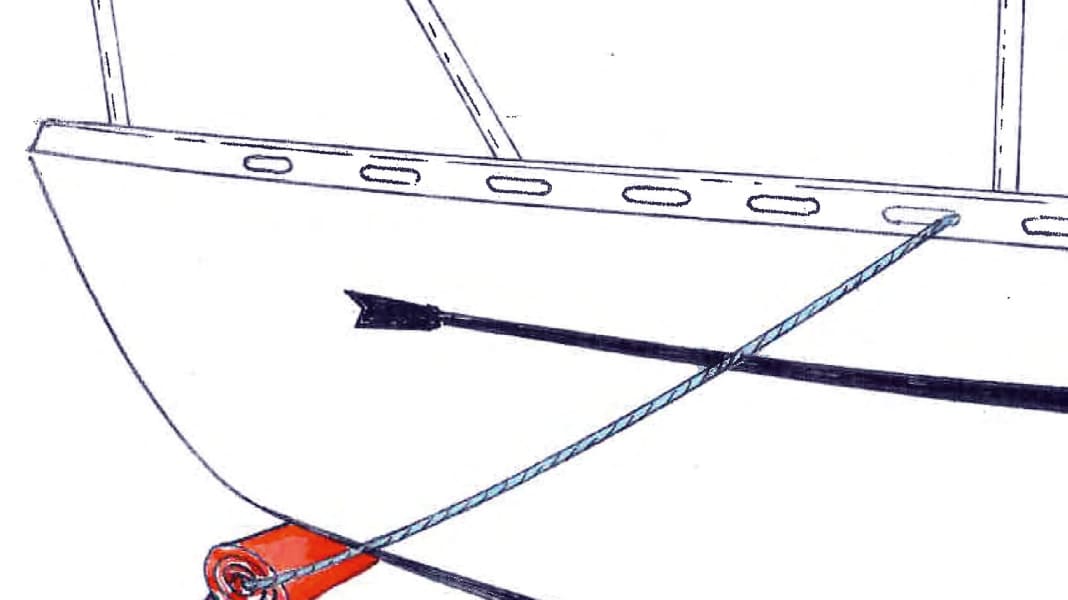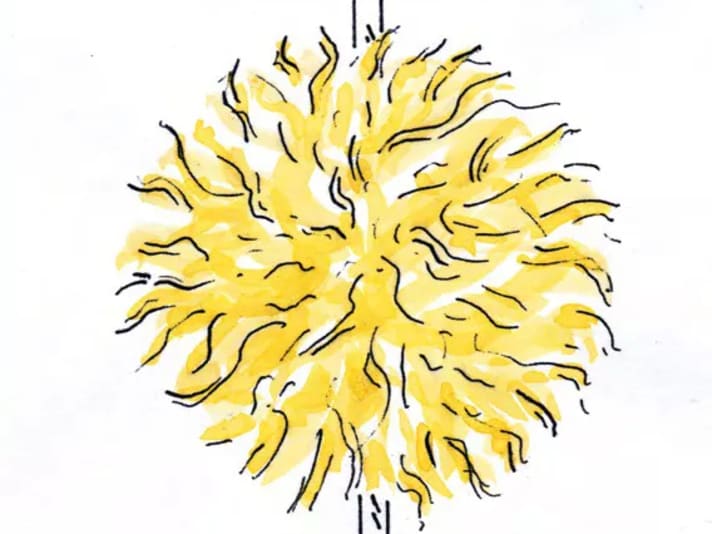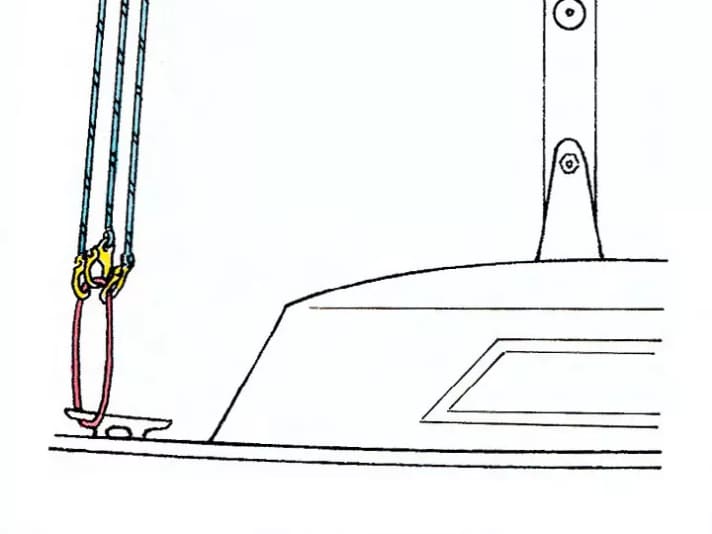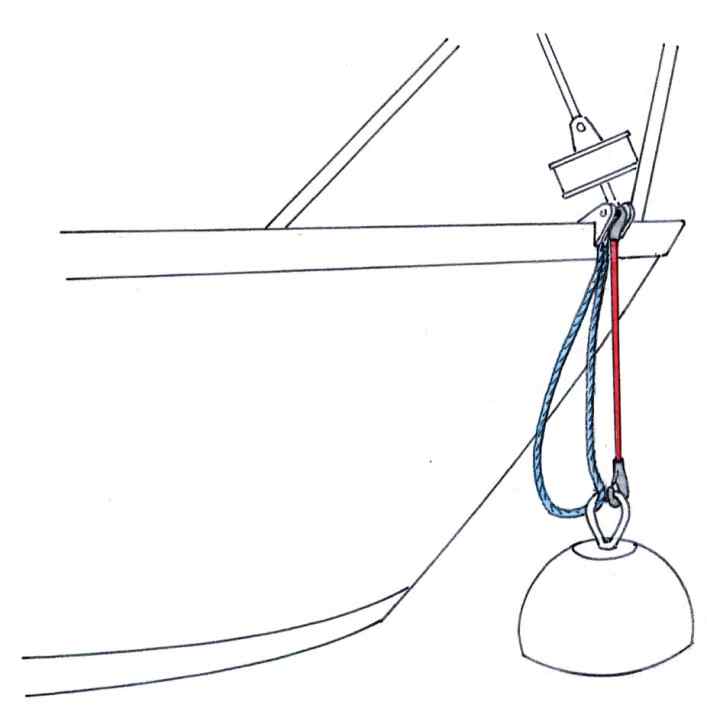
Breakwater at the stern: quiet night, restful night
With some hull shapes, even small waves can be heard lapping under the stern. If the berth is located there, this can lead to a restless night in the harbour if the wind direction is unsuitable. The sound of the waves can be perceived as very loud banging. It can help to break the wave in front of the ship's side, for example by deploying fenders aft. If there are not enough of these left (they are primarily needed on the side of the boat), improvisation can also help: we pierced two inexpensive foam mats with a knife and threaded a line through each side. We rolled them up and attached them to the railing supports or perforated moulding so that the breakwater is fixed under the stern. The background noise is now much more pleasant in swell from aft.
Ulrich Lange, Kiel
Further tips for a relaxing night's sleep on the boat
Calm in the rig
To counteract the humming of our Dyneema backstay, we simply made a bobble ourselves. Two cardboard discs with a diameter of six centimetres and a central hole measuring two centimetres each are slit and pushed onto the stay. Then wrap a thin cord around both cardboard discs, always through the central hole on the outside. After five layers, one on top of the other, the coiled line is cut between the cardboard discs on the outside and secured with a constrictor knot.
Alexander Friedrich, Wismar

Calm in the ship with a handle
The noise of rattling traps disturbs your own sleep and that of your neighbours, and the constant rubbing wears out the ropes. Wire traps also damage the mast. To avoid having to tame the toppnant and spinnaker individually each time, we have shackled both into a loop. This is placed over a cleat in the harbour with one hand. We put the halyards through and all is quiet.
Steffi von Wolff

Buoy on rubber band
Our boat is moored to a buoy, and at night we were often woken up by a muffled noise on the side of the boat when the mooring buoy drifts against the bow in calm conditions. The simplest solution was a sturdy rubber strop with a hook at each end. We hooked these to the buoy and to our anchor fitting. This keeps the buoy in position close under the bow and prevents it from hitting the side of the boat. In windy conditions, the elastic stretches and the mooring line holds the boat as usual.
Manfred Hofinger, Buchkirchen

Do you have any advice for other sailors?
We will honour the publication of your tip with50 EURO.Please add photos or sketches. We also need your address and bank details
Submissions to: Editorial office YACHT, Quartier O, Paul-Dessau-Straße 8, 22761 Hamburg; or: mail@yacht.de
